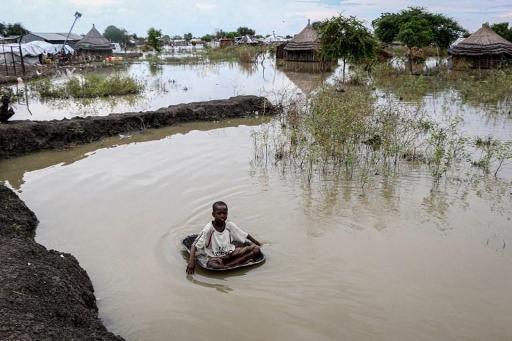The cost of climate destruction is rapidly rising, and countries that are responsible for the increasing intensity of extreme weather are failing to foot the bill, according to a recent Oxfam report.
Since the early 2000s, the amount of money needed for United Nations humanitarian appeals involving extreme weather events like floods or drought has increased by 819%, from at least $1.6 billion (around €1.5 billion) to an average of $15.5 billion (€14.5 billion in 2019-2021).
"The cost of climate destruction will keep rising and our failure now to cut emissions will have catastrophic consequences for humanity," Oxfam Executive Director Gabriela Bucher, said.
According to Oxfam, donors that are responsible for the increased risk of such damage are reportedly failing to match the rising costs: for every $2 needed for UN weather-related appeals, donor countries are only providing $1.
Rich countries should foot the bill
Oxfam argued that rich countries and companies responsible for the climate change impacts as a result of their emissions have met only an estimated 54% of the increasing appeals for humanitarian aid since 2017, leaving a shortfall of up to $33 billion (almost €31 billion).
Meanwhile, the richest 1% of people on Earth are emitting twice as much carbon pollution as the poorest half of humanity, according to Oxfam.
"While the frequency and intensity of extreme weather events due to climate change continue to increase, so does the pressure on an already over-stretched and underfunded humanitarian system," the organisation warned.
Related News
- 'Protecting nature protects people': Red Cross and WWF join forces to combat global warming
- The UN celebrates World Environment Day, while many challenges loom on the horizon
This is resulting in increased inequality in the countries and areas in the world that suffer most from these extreme weather conditions. Additionally, the current budget only covers the support for a fraction of the people in need.
“Poor countries cannot be expected to foot the bill, and increasing aid — while helpful — is not alone the answer. Paying the cost of climate-driven loss and damages should be on the basis of responsibility — not charity," said Bucher.
"Rich countries, rich people and big corporations most responsible for causing climate change must pay for the harm they are causing.” She added that their rejection of developing countries' calls for a new finance facility to address loss and damage at COP26 in Glasgow further "added insult to injury."

